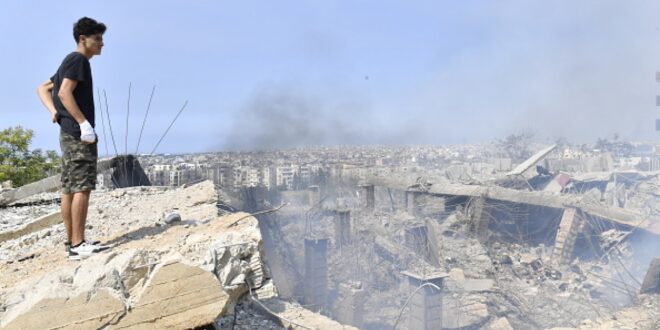Several buildings in Beirut’s southern suburb of Dahieh have been reduced to rubble following ferocious Israeli airstrikes.
Dozens of buildings in Beirut’s southern suburbs have been completely levelled following a night of heavy Israeli bombardment targeting the Lebanese capital on Friday.
Smoke could still be seen billowing from several buildings on Saturday in the southern suburb of Dahieh, which has now become the site of mounds of rubble and twisted metal.
The bombardments in Beirut were described as the most violent since Israel’s war in Lebanon in 2006. At least six people were killed in the attacks, including Hezbollah Secretary-General Hassan Nasrallah, the target of the strikes.
Nasrallah’s death has been condemned by Iran, Iraq, Hamas and Russia, as well the Palestinian Authority’s President Mahmoud Abbas, and has raised concerns over what will happen next in Israel’s almost one year-long war in the region.
Videos and images shared on social media showed several destroyed and now-uninhabitable buildings in the suburb. One resident could be heard saying: “The entire building behind us has collapsed”.
Dahieh is among Beirut’s most densely-populated areas, home to over half a million residents.
Fires could be seen emerging from some of the residential blocks. Other videos showed shattered glass, destroyed furniture, as well as cars jammed into road holes which formed as a result of the strikes.
The predominantly Shia suburb has become a ghost town after most of its residents were forced to flee and seek shelter elsewhere.
Thousands of Lebanese were forced to camp out overnight in streets, beaches, public squares and makeshift shelters after Israel late on Friday made evacuation orders.
Israel carried out more strikes on the capital on Saturday, plunging Beirut and the country into further chaos. The strikes come after Israel intensified its aggression on Lebanon this week, striking mostly the south but also other parts of the country.
More than 700 have been killed since Monday, with estimates saying that 150,000 have been displaced since.
 Eurasia Press & News
Eurasia Press & News




